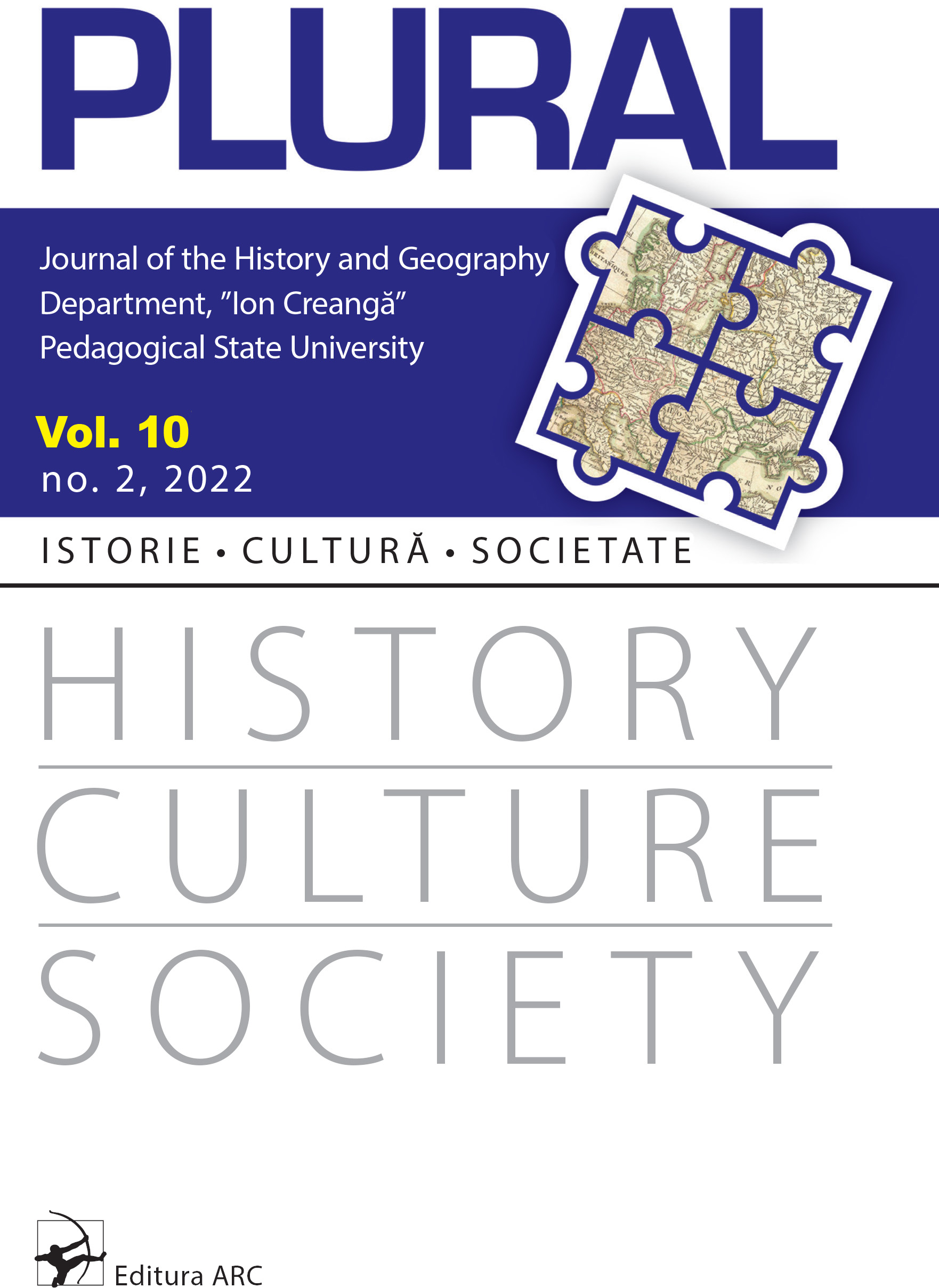Soviet Politics of Memory in Southern Bessarabia and Northern Bukovyna: Representation of the Past and Mythmaking during World War II
Soviet Politics of Memory in Southern Bessarabia and Northern Bukovyna: Representation of the Past and Mythmaking during World War II
Author(s): Viktor DrozdovSubject(s): History, Military history, Political history, Social history, WW II and following years (1940 - 1949)
Published by: Facultatea de Istorie și Geografie, Universitatea Pedagogică de Stat „Ion Creangă”
Keywords: politics of memory; Soviet ideology; Southern Bessarabia; Northern Bucovina; World War II;
Summary/Abstract: The incorporation of new territories into the Ukrainian SSR during World War II required reconstructing the local community’s identity and shaping its historical memory through Stalinist ideology. This article examines the features of Soviet memory politics in Ukrainian territories through the examples of Southern Bessarabia and Northern Bukovyna, which were annexed in 1940 due to the military campaign against Romania. The study’s objectives were to determine the influence of Soviet ideology on the representation of the past, characterize the ways that the official memory was shaped during World War II, and analyze historical myths that spread throughout the official and historical discourse. The main historical images, which Soviet ideologists formulated in official statements, historical works, and propaganda in periodicals, have been extracted using historical discourse analysis. Comparative historical analysis has identified similarities and differences in interpreting the abovementioned regions’ pasts. It is pointed out that the historical arguments and concepts used by the Soviet power to justify the annexations became the foundation for the historical discourse. The article analyzes the introduction of the myth of “long-suffering lands” into historical narratives, which interpreted the Soviet territorial conquests as the liberation of oppressed peoples. It has been established that the representation of Southern Bessarabia and Northern Bukovyna’s pasts corresponded to the Soviet concept of “Ukrainian people’s reunification.” However, the distinction between these regions’ ethnic composition and historical development influenced the politics of shaping historical memory
- Issue Year: 10/2022
- Issue No: 2
- Page Range: 85-102
- Page Count: 18
- Language: English

